
New information today from university admissions service, UCAS, shows a record proportion of Scottish students achieving a place at their first-choice university.
According to the figures, published to coincide with results day for Highers and Advanced Highers, a record 60.1% of Scottish students gained a place at their first-choice university. The number of Scots being accepted for a place at a UK university at this point in the admissions cycle is 29,630, the second highest on record, and above the pre-pandemic level.
“It’s great to see so many Scottish applicants being successful in gaining their first choice of a university course.“I’m also pleased that we can celebrate 4,540 Scots from the most deprived areas being accepted for a place at university so far. This is the second highest on figure on record and reflects our commitment to fairer access to higher education.”

During a visit to the Mazumdar-Shaw Advanced Research Centre at the University of Glasgow, Higher Education Minister, Jamie Hepburn, has today (Wednesday 3 August) announced the challenge areas selected for a new national research initiative. The initiative will see partnerships drawn from Scottish universities, and others, addressing societal challenges while at the same time boosting Scottish research competitiveness.
Alliances for Research Challenges (ARCs) will each receive up to £600,000 of funding over four years from SFC to enable universities to create broad, multi-disciplinary, cross-sector teams that will coordinate and support bids for further, external research funding, enabling them to find solutions which benefit Scottish society in line with Scottish Government priorities.
The selected challenge areas will consider societal challenges ranging from how we tackle healthy ageing and improve the nation’s brain health; to how we might use quantum technologies to support our future economy; to how we manage our food systems, addressing health, equity, and sustainability; and to how we manage energy transition and sustainability, tackling social, technical, and economic challenges.
Higher Education Minister, Jamie Hepburn, said:
“It was great to visit the University of Glasgow and announce the successful challenge areas as part of SFC’s new Alliances for Research Challenges (ARCs).
“ARCs will connect Scotland’s research excellence to Scotland’s national challenges and will build on Scotland’s unique collaborative ethos and our world-class universities to prime the Scottish landscape to respond to challenge-focused research funding opportunities.
“I look forward to hearing more as these ARCs progress and the innovative solutions being developed in areas ranging from healthy ageing, quantum technologies, managing our food systems, and energy transition and sustainability.”
Commenting on the outcome, Mike Cantlay, Chair of SFC, said:
“Scotland has a world-leading research base, as confirmed by the recent UK-wide assessment of university research, and our universities are well-placed to help us find solutions to some of the biggest challenges we face together.
“We are delighted to be supporting them to work collaboratively across subject disciplines and across institutions so that they are in a stronger position to compete for the necessary funding that will enable them to carry out research that will find solutions that are of benefit to us all.”
Principal of the University of Glasgow, Professor Sir Anton Muscatelli, said:
“Scotland’s universities are a genuinely world-leading source of research and expertise that will play a central role in meeting the major social, economic and environmental challenges that we face in the 21st century. Playing our full role in tackling these national and international issues will require us to work together not just across institutions but across disciplines and the Alliances for Research Challenges will play a crucial role in facilitating this work.
“This philosophy of multi-disciplinary research is perfectly encapsulated in the University of Glasgow’s newly opened Mazumdar-Shaw Advanced Research Centre, a truly unique building which fosters bold and creative research, and which will have a genuine social impact and make a significant contribution to tackling the major challenges before us in the years to come.”
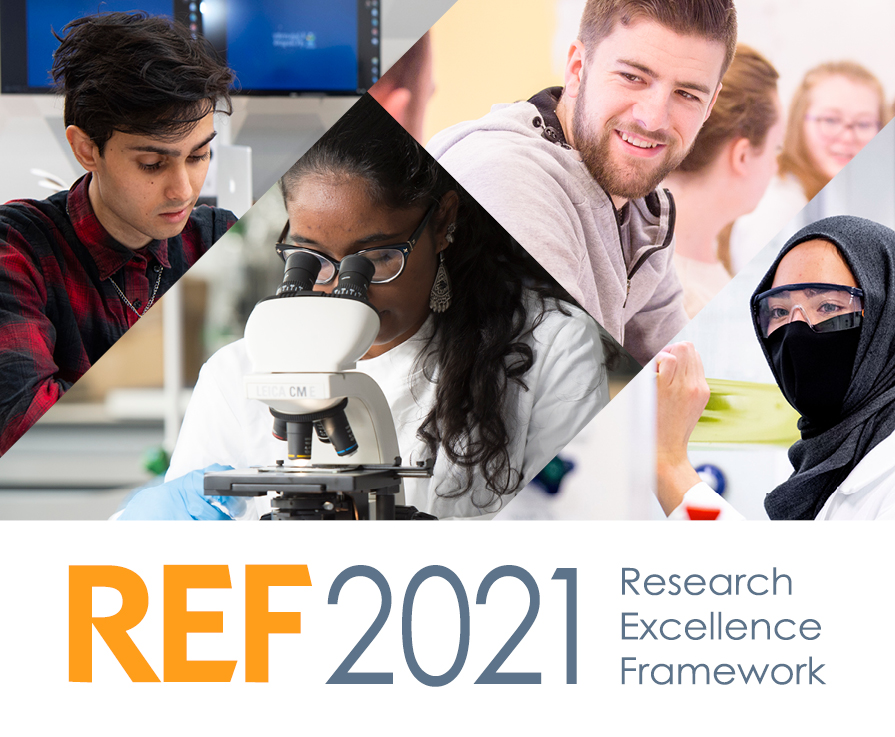
An expert panel appointed to test the feasibility of assessing the research environment at whole-university level has reported its findings. The institutional-level environment pilot panel (ILEPP) reviewed submissions from the 157 universities that participated in REF 2021. The report sets out ILEPP’s key findings and makes recommendations to the funding bodies on inclusion of institutional-level assessment in future exercises.
The panel concluded that:
- Institutional-level assessment has the potential to reduce burden for universities in preparing REF submissions and provides valuable recognition of the support for research and impact at that level.
- It should replace the current unit-level model for assessing the environment, that was used in REF 2021 and previous exercises.
- Detailed refinements will be needed, including a more structured and data-based template, to ensure the process is sufficiently robust.
The four UK higher education funding bodies welcome publication of the pilot’s findings. The report will feed into the Future Research Assessment Programme, to inform the arrangements for a future exercise. The four funding bodies commenced the pilot exercise in response to the recommendations of an independent review of the REF in 2016, led by Lord Stern. The recommendation for a separate assessment of the institution’s research environment aimed to reduce duplication in the submission process, and to recognise and reward those aspects of the environment that reflect the strategy, support and actions of the institution as a whole.
Professor Chris Day, Vice Chancellor and President of Newcastle University, chaired the pilot panel. Commenting on the pilot’s findings, he said:
‘I was delighted to chair the pilot panel through our important work. The pilot showed the feasibility and real value of introducing institutional assessment. My panel is clear in the view that assessment at this level has much to offer universities: in reducing the workload involved in producing multiple unit statements, and in supporting a ‘coming together’ across an institution to identify, reflect on and develop the strategies and resources invested in research and delivering impact from it.’
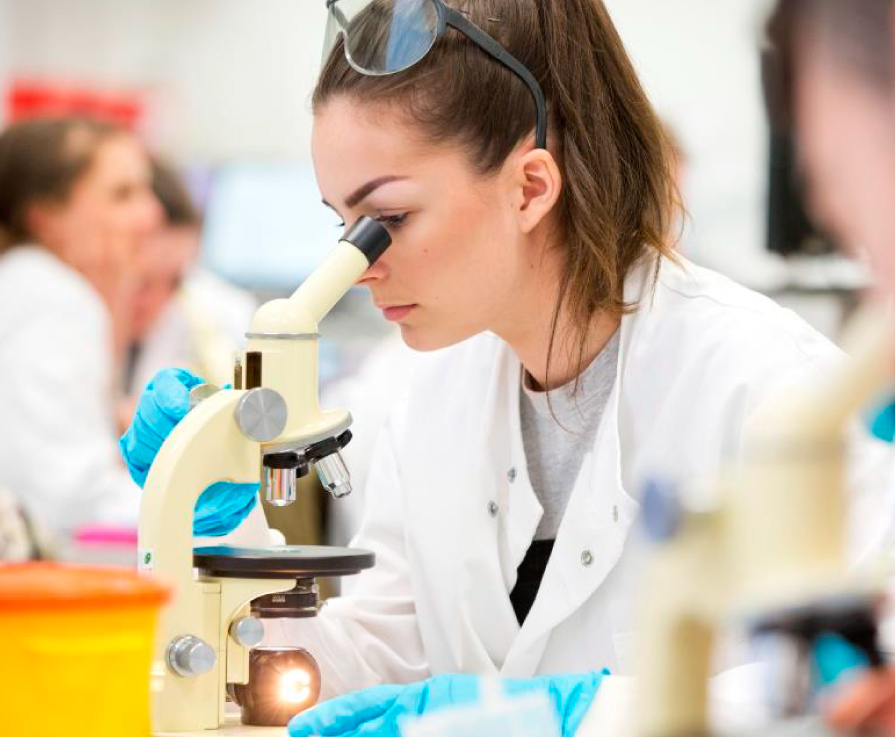
A new £100 million round of the UK Research Partnership Investment Fund (UKRPIF) has been launched today.
Established in 2012, UKPRIF has so far awarded £900 million to 53 projects across the UK. The money is available to universities for infrastructure and capital projects that underpin excellent research. For every £1 received from the UKRPIF, universities must attract a further £2 from non-public sources.
UKRPIF invests in the future of the country’s research creating partnerships around the development of large-scale research infrastructure. Once built, these pioneering, state-of-the-art facilities enable the universities and their partners to develop the answers to some of today’s biggest research challenges.
The closing date for intention to submit forms being returned to UKRI is midday on Thursday 4 August 2022. The funding will start in April 2023.
Further details of the latest round of UKRPIF funding are now available on the SFC website.
To find out how the UK Research Partnership Investment Fund played a crucial part in the success of “one of the great biomedical research centres of the UK” read our blog by Professor Mike Ferguson, Regius Professor of Life Sciences at the University of Dundee.

A programme of low interest loans totalling up to £31 million is being made available to universities for the current financial year.
The programme is designed to advance Scottish universities’ carbon management plans and to be consistent with the pathways to net zero set out by the Scottish Government.
Applications are being invited from 29 August 2022 until 31 October 2022 after which period proposals will be assessed and a selection made by the end of the year.
The following case study showcases the SFC-backed developments currently underway to meet net zero targets.
Solar Photovoltaic Development at Eden Campus – St Andrews University
The Solar Photovoltaic (PV) Development at Eden Campus is part of ambitious plans by the University of
St Andrews to meet net zero targets, contribute to a just transition from fossil fuels, and take a leading role in driving a successful local and national economy.
The one-megawatt ground solar photovoltaic (PV) development – backed by the Scottish Funding Council and supported by the Vacant & Derelict Land Fund from the Scottish Government and Fife Council – will provide electricity to the campus. This move further reduces the University’s overall carbon footprint by approximately 5%. This is the equivalent of 11 tons of carbon dioxide per year. A real time performance system has been installed and daily outputs and carbon savings are recorded.
With a planned extension of its district heating network – which already pipes hot water from its
award-winning £25 million biomass plant to 48 University buildings and 3,000 student rooms in St Andrews – and the solar farm, the expectation is that the Eden Campus will be a carbon-neutral working environment within the next five years.
In addition to providing power to Walter Bower House and other buildings on the campus, the electrical supply will be utilised by electric vehicle charging points and the installation of battery storage.
The ground solar project now provides electricity to Eden Campus, supporting the existing biomass district heating facility at the Campus. Further rooftop solar panels are currently being installed in a new dry laboratory on the Campus and a second phase of rooftop solar panels are planned for next year on Eden Mill’s distillery and the University’s energy centre.
The solar photovoltaic development was commissioned on 22 December 2021 and a formal launch event was held on 18 May 2022 attended by the Cabinet Secretary for Finance and the Economy, Ms Kate Forbes, the University’s Principal Professor Dame Sally Mapstone, the Director of Universities Scotland, Alistair Sim, members of the delivery team and all of the children from Guardbridge Primary School.

According to the latest National Student Survey, Scottish universities remain ahead of the UK average for overall student satisfaction.
The 2022 survey, published today, reflects the university experience of final year undergraduate students. Carried out independently by IPSOS-MORI on behalf of the UK funding and regulatory bodies, its questions include how well students feel their course was taught, the kind of resources provided, and how they received assessment and feedback.
Across Scotland’s universities, 78.6 % of final year undergraduates surveyed were satisfied with the quality of their course compared with a UK average of 76.3%.
Seven Scottish universities, including Abertay University, the University of Aberdeen and the University of Edinburgh recorded an increase in student satisfaction. For the fourteenth time in the last sixteen years the University of St Andrews is the institution with the highest level of satisfaction in Scotland.
James Dunphy, Director of Access, Learning and Outcomes at the Scottish Funding Council, said:
“We are committed to ensuring students can influence their educational experience by having their voice heard and valued. The National Student Survey is one of the ways we can tune into that student voice, and it is encouraging to see Scotland’s universities continuing to perform well in a UK context.
“Today’s results also provide universities with areas for improvement, and I know that together with student bodies they will work to ensure plans are in place to act on the findings, and further enhance the student experience.”
Earlier this year the results of the UK-wide assessment of university research showed that 90% of Scottish university research had outstanding or very considerable impact, further reinforcing the global reputation of Scottish institutions.
Read the full results of the 2022 National Student Survey.

All of Scotland’s higher education institutions have signed a UK-wide Academic Integrity Charter, developed by the Quality Assurance Agency, the UK’s independent quality body for higher education.
In signing up to the charter, the universities have demonstrated their commitment to upholding academic integrity and to protecting the global standards and reputation of higher education from threats posed by essay mills, and other forms of academic misconduct. Scotland is the second nation in the UK to have achieved unanimous support for the Charter, following Wales, who obtained full support in August 2021.
The Charter was developed with support from the UK Academic Integrity Advisory Group, and formally launched in April 2021. It is based on seven principles which can be used to develop institutional policies and practices underpinning academic integrity. So far, over 200 higher education institutions across the UK have signed the Charter.
Karen Watt, Chief Executive of the Scottish Funding Council said,
“It’s great news that all of Scotland’s higher education institutions have signed up to the Academic Integrity Charter, because maintaining the integrity of Scotland’s university qualifications is critical for our collective mission of securing coherent, high-quality provision. This is a clear demonstration of the commitment in the sector to protect academic standards, uphold academic integrity and support students.”
Caroline Turnbull, QAA’s Acting Director of Scotland, Wales and Northern Ireland commented:
“In expressing support for the Charter, the Scottish higher education sector is sending a clear message about the integral value it places on academic integrity. We look forward to working with colleagues from across Scotland to share practice on how the Charter has informed practice and stimulated conversations within their institutions. QAA will continue to work with the Scottish Government, Scottish Funding Council and stakeholders across the sector to support the development of legislation to ban essay mills in Scotland.”
Jamie Hepburn MSP, Minister for Higher Education and Further Education, Youth Employment and Training said:
“Academic misconduct, and those individuals and companies seeking to encourage and benefit from such behaviour, is increasingly concerning in higher education across the globe. Although the vast majority of students achieve their qualifications entirely by legitimate means, any form of academic misconduct or cheating poses a threat to overall academic standards at our institutions.
“I am therefore delighted that all of our Higher Education institutions in Scotland have signed up to QAA’s Academic Integrity Charter, signaling a clear commitment in our sector to protect and promote academic integrity.”
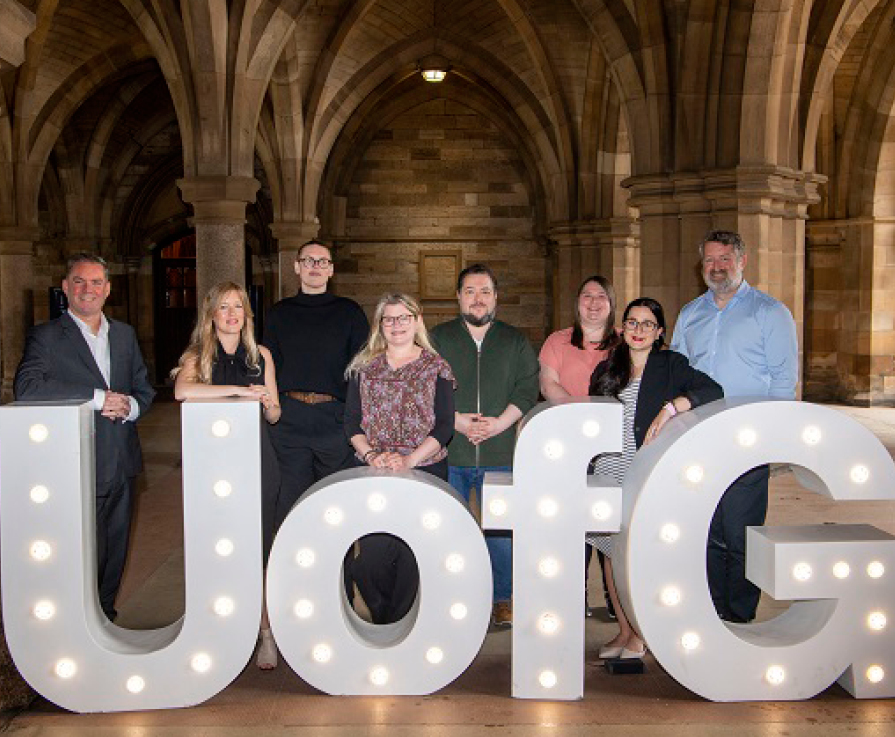
A microcredential course in information management has become the first of its kind in the world to be recognised by a professional association.
The course is provided by The University of Glasgow with financial backing from the Scottish Funding Council’s Upskilling Initiative. The 10 week programme has now been accredited by CILIP (the UK’s library and information association).
James Dunphy, Director of Access, Learning and Outcomes at the Scottish Funding Council, said: “We are delighted to have supported the development of this course. Our Upskilling Fund is enabling universities to respond in an agile, dynamic and responsive way to the changing world of work, new job roles and skills needs.
“The University of Glasgow’s Introduction to Information Management course is a prime example of the type of course this Fund is intended to support, and we congratulate the course leaders on this fantastic achievement.”
Professor Moira Fischbacher-Smith, Vice-Principal of Learning and Teaching at the University of Glasgow, said:
“The Scottish Funding Council funding initiative has enabled us to develop new provision to support employers and employees in the workplace.
“This fantastic news of CILIP accreditation is a testament to the skills-focused approach and hard work of University of Glasgow colleagues. This accredited addition to our portfolio of microcredentials recognises the importance of furthering quality information and enriching lives through knowledge and education. I’m very grateful to colleagues in the College of Arts who have created this new course.”
The course will welcome a second cohort of students in spring 2023.
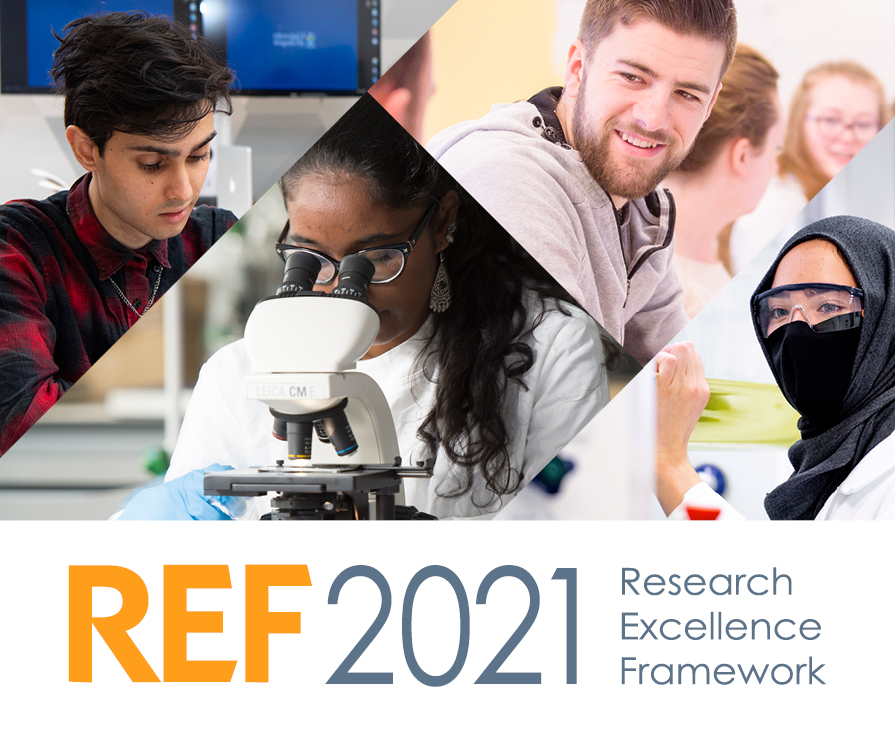
The national and international impact of Scottish university research has been brought to life in hundreds of case studies published today.
8,675 academic staff at 18 Scottish institutions made submissions to REF 2021, the UK’s framework for assessing the quality of higher education research. In doing so they produced 746 case studies illustrating the benefits of their research. The case studies cover eight different types of impact with over 70% falling under the headings of society, technology and culture. A further 90 case studies are in areas relating to health and 65 cover environmental research.
A joint environmental research submission from the University of Edinburgh and Heriot-Watt University shows how they are helping to protect the UK’s remaining red squirrels. Working with partners in ecology, conservation and forest management, the research group used mathematical modelling to prove squirrelpox infection is a key factor in the decline of red squirrel populations.
Also amongst today’s case studies is an example of the University of Glasgow’s world-leading research into heart failure, a major cause of premature death. In 2016 the University led a study that transformed the treatment of the condition by underpinning the approval of sacubitril/valsartan, a ground-breaking drug now approved for use in 112 countries. Over1.4 million patients worldwide are currently benefitting from the drug.
At Abertay University researchers have increased the quality of counselling services for blind and partially sighted people across the UK. Work led by Dr Mhairi Thurston focussed on understanding the social and emotional effects of sight loss and how counselling can work to mitigate them.
Under the umbrella of cultural research, Edinburgh Napier University led a collaboration that included the iconic Abbey Road Studios and the BBC World Service to develop new ways of producing music. Their work is allowing performers to rehearse remotely and in real time and has benefits for both rural ensembles and leading international orchestras.
An engineering case study explains how researchers at the University of the West of Scotland are working on the next generation of autonomous sensors for ensuring energy efficient buildings. Their Smart Built Asset Management research programme has already improved the sustainability and comfort of buildings by demonstrating energy savings whilst also assuring the quality of indoor air.
The database of all REF 2021 case studies is available from today.
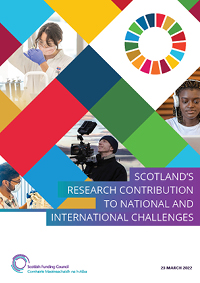
Over 250 guests from colleges and universities across Scotland gathered last night for the Herald Higher Education awards; the first to be held in person since 2019.
The annual awards celebrate achievements in teaching and research and shine a spotlight on widening access, student support and business engagement. They also recognise individual students and staff who make a significant contribution to academic life.
The Scottish Funding Council (SFC) has been involved in the awards since the first event in 2015. This year SFC supported the Research Project of the Year Award joining other high-profile sponsors such as QAA Scotland, JISC and City of Glasgow College.
The coveted Higher Educational Institution of the Year award was won by the University of the West of Scotland. The prize for Research Project of the Year went to the University of Aberdeen for its Cool Farm Tool project. Marking the extraordinary efforts of colleges and universities to support their students during the pandemic, the Supporting Student Wellbeing Award attracted record entries in this year’s awards. It was won by the University of Edinburgh Chaplaincy for the Listening Service
Donald Martin, editor-in-chief, The Herald and The Herald on Sunday, said:
“The depth and breadth of initiatives being carried out in our higher education institutions is quite exceptional and it was only right that we had the chance to honour the organisations, staff and students who are at the forefront of so many exciting projects.”
The full list of winners in the 2022 Herald Higher Education Awards 2022 is available here.
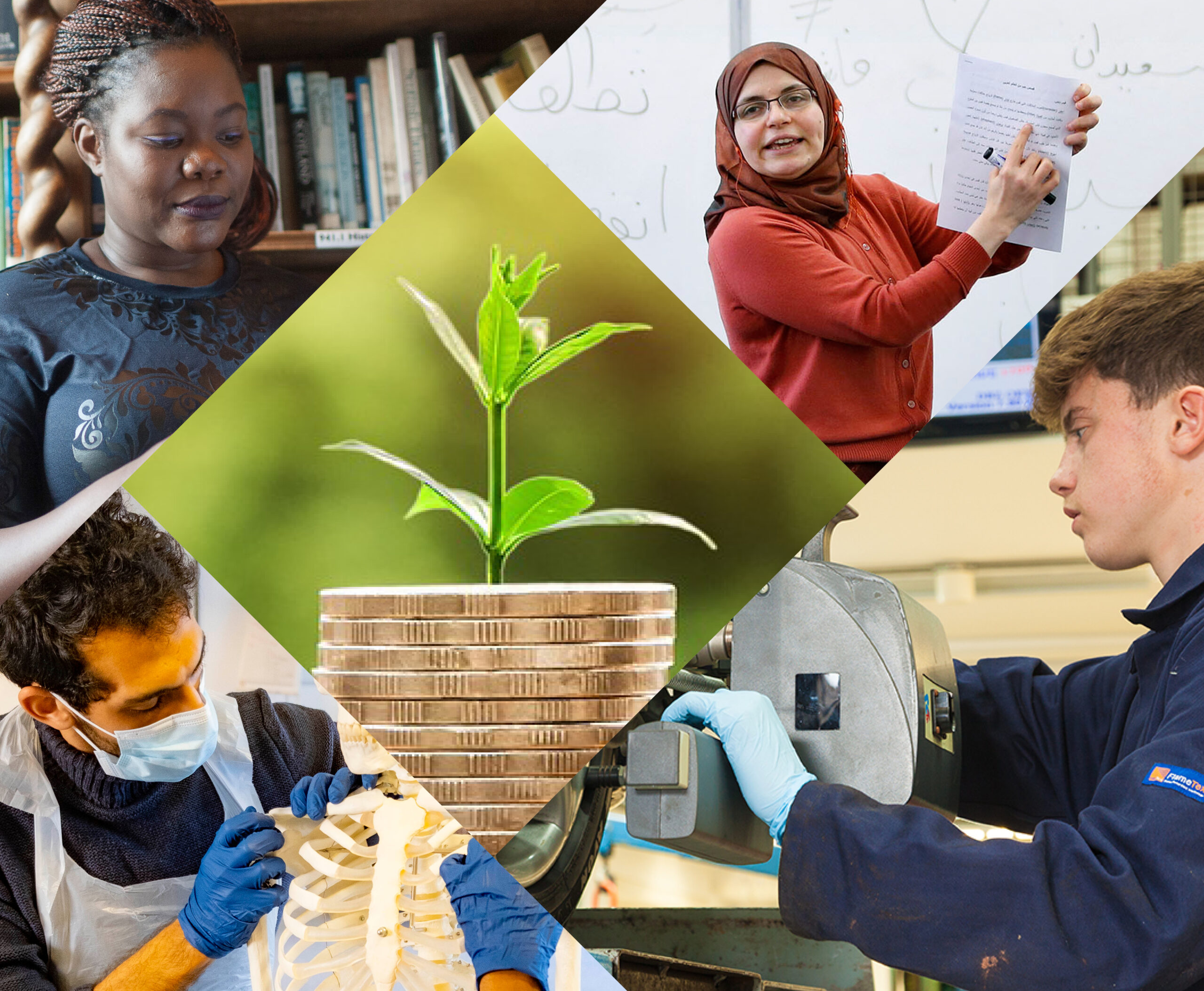

The Scottish Funding Council’s latest report on widening access has found more disadvantaged young people returned for the second year of their university degree course in 2020-21 than in the previous year. They were part of the cohort of students whose first year of studies was disrupted by Covid-19.
According to the report, which was published today, the retention rate for students from Scotland’s 20 percent most deprived areas increased from 87.5 percent in 2018-19 to 90.2 percent in 2019-20. This was almost exactly in line with the rise in the retention rate for all students starting their university course that year.
During the first summer of the pandemic the Scottish Government introduced a raft of ‘no-detriment’ measures to support students. These included early access to £11.4 million of Higher Education Hardship Funds. In August 2020, the Scottish Funding Council announced a £5 million fund to help colleges and universities tackle digital exclusion among disadvantaged students. Across the whole of Scotland universities introduced initiatives to help their students cope with the challenges they were facing.
Today’s report also confirms the university sector has once again achieved the Commission on Widening Access’s interim target of 16 percent of all Scottish-domiciled full-time first-degree entrants being from the 20 percent most deprived areas by 2021-22. In 2020-21, 16.7 percent of all Scottish-domiciled entrants to full-time first-degree courses were from these areas.
Additionally, the new report finds that at tertiary sector level equality of access is being achieved, albeit with variations in level of representation at institution and sector level. Combining all full and part-time undergraduate higher education courses at Scotland’s universities and colleges, 19.7 percent of entrants were from the 20 percent most deprived areas. This figure rises to over 21 percent for full-time entrants only.
Commentating on the report, James Dunphy, SFC’s Director of Access, Learning and Outcomes said:
“Today’s report reflects the advances being made in achieving our collective ambitions for fair access to higher education in Scotland. It also makes a valuable contribution to understanding how universities, colleges and other stakeholders can work to accelerate progress.“It is encouraging to see evidence that interventions across our system – from the Scottish Government, the Scottish Funding Council and individual institutions – had a positive effect on our most vulnerable students during the first year of the pandemic.
“Another positive is that retention rates have increased for these students as well as for the general student population.
“These outcomes are worth celebrating as we push ahead with plans to widen access across the tertiary system”

A research project at the University of Strathclyde is set to receive £2.5m as part of a £18.9m funding announcement made today by UK Research and Innovation (UKRI).
The announcement is part of a UKRI pilot initiative to explore how existing UKRPIF-funded research centres and facilities can be enhanced to address net zero carbon emissions targets. The University of Strathclyde is one of nine successful projects located right across the UK which include a wide variety of approaches to reducing carbon emissions.
The University will use the money to transform CMAC, its world class centre for the development and manufacture of medicines, into a sustainable, digitalised ‘lab of the future’.
The investment will reduce greenhouse gas emissions by over 50% across a range of sources and enable the adoption of more sustainable approaches in research laboratories. It will also allow the University to work with partners including AstraZeneca and Pfizer on a further range of net zero measures in areas such as the adoption of smart experimental platforms and reducing carbon emissions from travel. The University hopes its multi-faceted net zero approach will establish a beacon for medicines manufacturing sustainability.

The wider benefits of dance are being more closely understood through a pioneering research and knowledge exchange partnership between Scottish Ballet and The Royal Conservatoire of Scotland (RCS).
A diverse series of research projects between the two partners has encompassed both physical and mental health, and included work with vulnerable at-risk young people as well as those living with dementia, Parkinson’s and multiple sclerosis.
By enabling it to access research skills and expertise not readily available to performance arts organisations, the collaboration has supported Scottish Ballet in its mission to ‘inspire on stage and beyond’. For researchers at RCS, their work with Scottish Ballet has provided them with a unique research environment and unprecedented access to contribute to the under-researched area of Dance Health.
The partnership dates back to RCS’s involvement in ‘The Close’, a project which introduced at-risk young people to dance and music for the first time. It was designed to develop personal and social confidence and interpersonal skills through creativity.
In working with people with multiple sclerosis, dementia and Parkinson’s, Scottish Ballet’s aim has been to both improve individuals’ quality of life, mitigate symptoms, and create a joyful dance experience. It has sought to extend the benefits of dance in a way that meets the specific needs of each group.
A tenet of the RCS research has been to recognise the importance of inviting dancers to share their experiences, and to be active participants in the research. The impact of this research has been passed on to the client groups through the subsequent refinement and development of Scottish Ballet’s outreach programme.
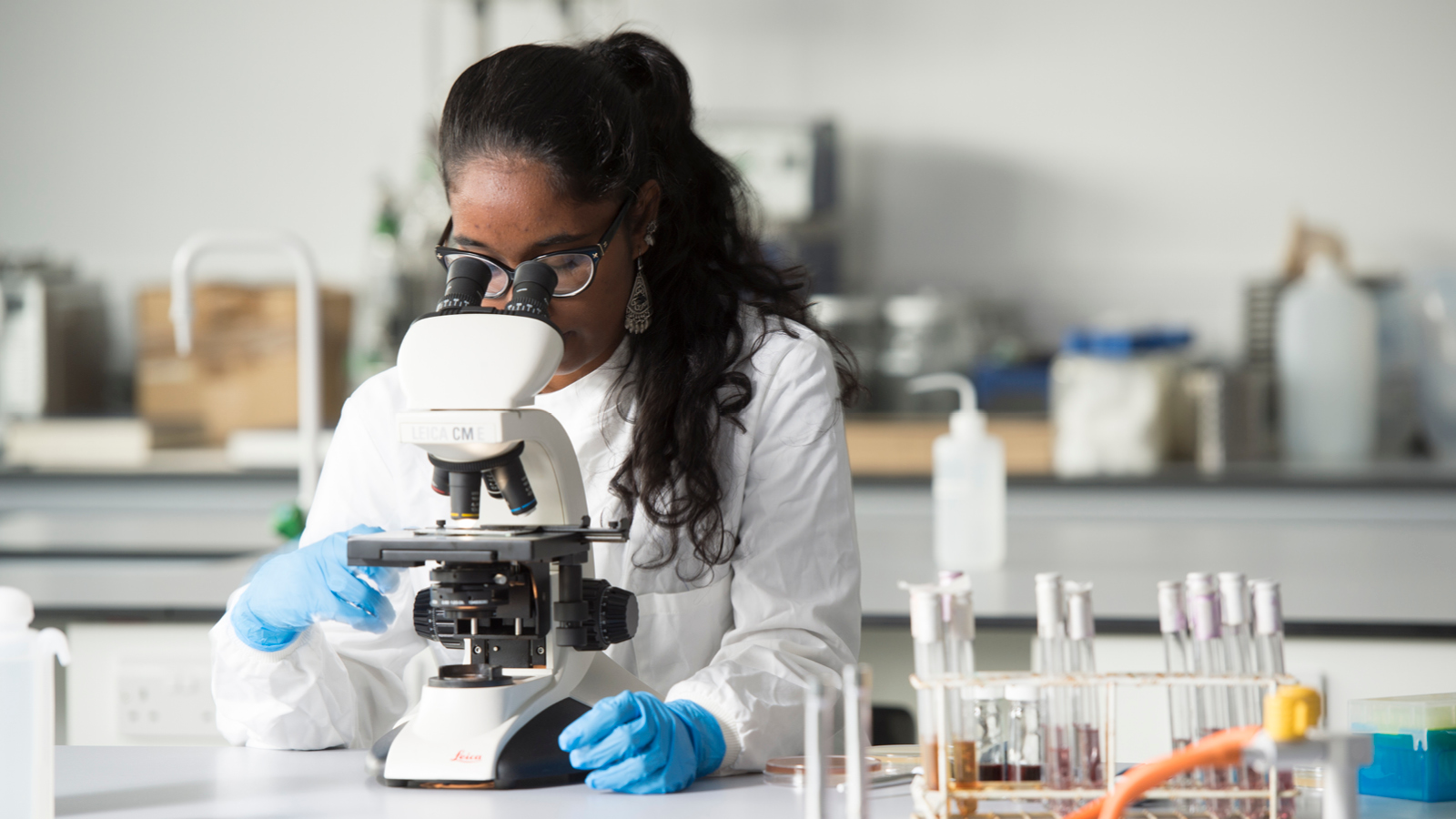
The results of the UK-wide assessment of university research have confirmed that Scotland’s universities continue to excel in producing world-leading research with evidence of impressive impact.
The Research Excellence Framework (REF) 2021 results, published today (12 May 2022), provide a robust and thorough assessment of the quality of universities’ research in all disciplines, providing accountability for public investment in research and demonstrating the benefits of that investment.
The results for Scotland’s universities are based on 21,256 research outputs from 8,675 academic staff at 18 institutions. Key findings are as follows:
- 41% of research was world-leading (4*) and 44% internationally excellent (3*) across all submitted research activity.
- All Scottish institutions have 50% of research judged as world-leading or internationally excellent, demonstrating excellence right across the country.
- Over three-quarters of institutions have more than 20% world-leading research.
- Almost 90% of impact is judged outstanding or very considerable.
REF 2021 provides a broader view than available before of research quality that spans the range of research activity being undertaken by each participating university. This arises from rule changes requiring the inclusion of all staff with a significant responsibility for research and has seen a substantial increase in the number of staff returned in the assessment since the last REF in 2014 – up 37 per cent.
Speaking on the day the results were published, Scottish Funding Council Chief Executive, Karen Watt, said:
“Today’s results underline the strength of university research in Scotland and reinforce the global reputation of our world-leading institutions. With almost 90% of Scottish university research being judged to have outstanding or very considerable impact, we can clearly see the real benefits that public investment is having on people’s day to day lives.
This is a huge achievement and I would like to pay tribute to every member of staff who has contributed to this robust process and to all those who continue to make such a huge contribution to addressing the societal challenges we collectively face.”
Minister for Further Education, Higher Education and Science, Jamie Hepburn, said:
“Today’s REF2021 results highlight the excellent research being carried out in our institutions and confirms Scotland’s position as a world-leading research nation. They also demonstrate the impact of Scottish research across all disciplines which is something we should be rightly proud of.”

According to experts, domestic energy renovation projects are currently lagging behind the level needed to decarbonise the building stock within required timescales. Encouraging and enabling individual homeowners to reduce the environmental footprint of their homes could therefore make a considerable impact on Scotland’s transition to net zero.
An innovative solution to this challenge is one of the outcomes of an international knowledge transfer partnership between Robert Gordon University (RGU) and organisations in five other countries. Focussed on innovation, the Stronghouse project supports community approaches to retrofitting houses for energy efficiency. Its ultimate aim is to reduce the carbon footprint of some 15,000 homes in the North Sea Region. Stronghouse partners include local and regional authorities, knowledge institutes, SMEs, business support and public service providers.
The tool also offers long term step-by-step retrofit plans to help homeowners improve their energy efficiency through cutting edge technologies. It is being piloted as part of an 18-month project to support people to carry out energy renovation improvements.
The Scott Sutherland School of Architecture and Built Environment at RGU is one of the three oldest of its kind in the UK, and has a heritage that extends back to the 19th century. Its interest in researching the energy used by buildings goes back many years.
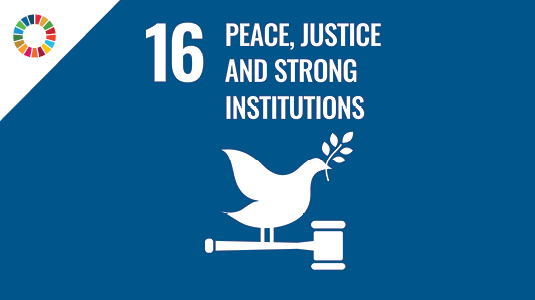
Research by Edinburgh Napier University and the Scottish Institute for Policing Research has played a key role in significant changes to stop and search in Scotland, leading to a 67 percent decrease in ‘stop events’.
Between 2005 and 2010, recorded searches in Scotland had increased dramatically, with the per capita rate being almost four times that of England and Wales. However, before 2014 there was scant research on Stop and Search in Scotland, with a lack of published data and weak accountability and oversight.
In 2014 Police Scotland launched a pilot to test a new stop and search approach and Dr Aston (Edinburgh Napier University) and Dr O’Neill (University of Dundee), were awarded SIPR funding to evaluate it. Findings and Recommendations from their evaluation of the stop and search pilot were included in the Independent Advisory Group’s report. This resulted in the abolition of non-statutory stop and search and the introduction of a new Code of Practice.
The recommendations were subsequently incorporated in Police Scotland’s Improvement Plans and it produced a 38- page report on its response, highlighting that all the recommendations had been actioned. For example, Police Scotland developed a bespoke training package informed by learning from the evaluation and initiated a face-to-face training programme for all officers up to Inspector.
The impacts as a result of the research and have also been acknowledged by the Scottish Police Authority and Her Majesty’s Inspectorate of Constabulary Scotland. Through a new EU funded network of 29 countries, police stops are now being examined in jurisdictions where it has hitherto not been considered a public issue.
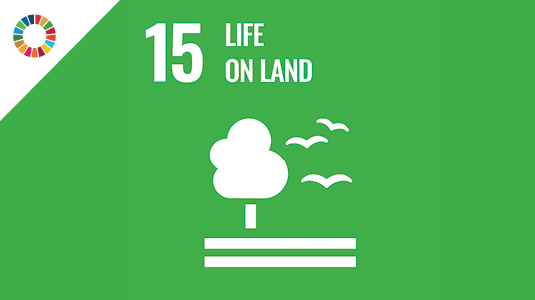
Equatorial Africa harbours the second largest expanse of rainforest on earth. The greatest threat to these forests is clearing for alternative land uses believed to bring faster development and economic growth.
The University of Stirling has been working in Gabon for more than 40 years and its station in Lopé National Park is deemed a ‘supersite’ for climate research because of its unique datasets. It has uncovered effects of climate change such as a significant decline in the fruit production of trees over the past 25 years, along with a drop in the physical condition of forest elephants.
The University of Stirling is now working with its partners in Gabon and the UK to create a research hub – forestLAB – that will support conservation-led business models for sustainable development in central Africa, enabling greater and more secure forest protection.
forestLAB will have a physical research hub in Gabon’s Loango National Park – one of the world’s critical havens of biodiversity. Led by Professor Kate Abernethy, the Stirling team will design and manage a research portfolio combining natural history, ecology, anthropology, and the social sciences. The subsequent conservation strategies will affect management across Afrotropical forests, an area approximately the size of Europe.
As well as setting up pioneering biodiversity and human impact monitoring, enabling ecological forecasting for the region, the team will use existing experience in Lopé to prepare tourism and training materials to enable expert researchers to act as forest tour guides.
forestLAB is a flagship project for Scotland’s International Environment Centre, established as part of the Stirling and Clackmannanshire City Region Deal and led by the University of Stirling.
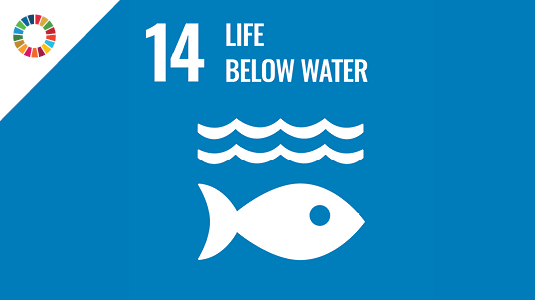
The Sea Mammal Research Unit (SMRU) at the University of St Andrews conducts research into animal behaviour and communications, helping to minimise our damage to two highly vulnerable animal groups; cetaceans (whales, dolphins, and porpoises) and seals.
Its integrated research programme generates accurate estimates of UK seal demographic rates, abundance, and population trajectories. Since 2016, SMRU has used aerial surveys to cover 95% of UK haul-out sites in its investigation of Harbour Seals. Additionally, data from telemetry tags on seals has revealed dramatic population declines of up to 10% in certain regions.
SMRU’s population dynamics research has been used by the UK to fulfil its legislative obligations under the EU Habitats Directive. Since 2013, its research has been used to calculate safe upper limits on the number of seals that can be removed from a population without leading to long-term population declines.
SMRU has also worked to protect cetaceans from the impact of naval sonars which can seriously affect cetacean’s echolocation and social communication. In 2003, SMRU developed a way to determine the lowest sound level that disturbs cetaceans, which has been used to understand their responses to naval sonar.
This research has since been crucial for the effective management of naval sonar use; for instance, the US Navy used SMRU’s data while assessing and mitigating the environmental impact of its sonar activities. The Norwegian and Netherlands navies have also changed their operating procedures based on SMRU’s research.
More recently, NATO’s planned training exercises have been updated, allowing the alliance to conduct large naval operations without adversely affecting cetaceans to an unnecessary degree.
Statistical publication schedule
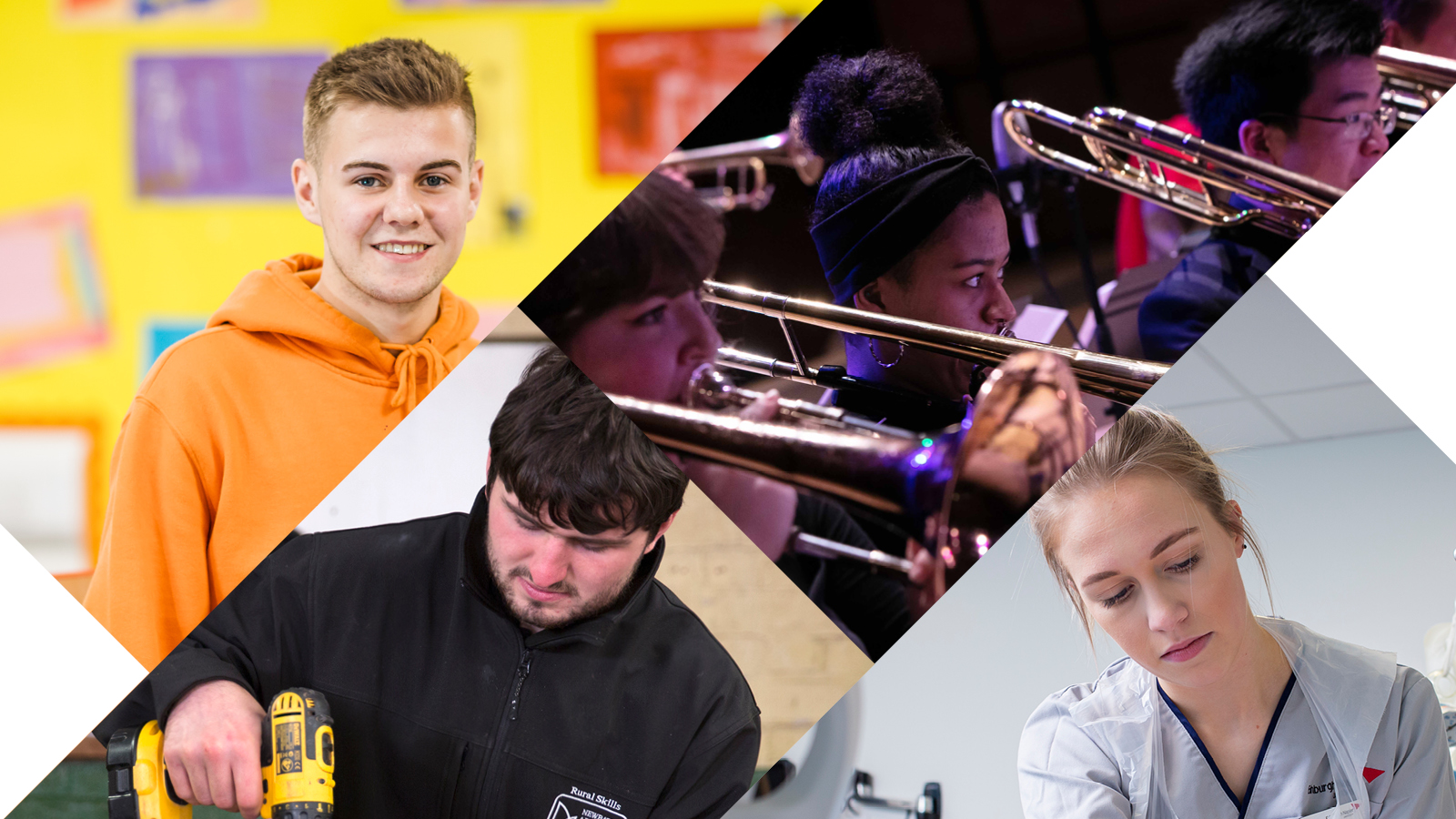
New figures from the Scottish Funding Council have confirmed there were 332,815 higher education (HE) students in Scottish universities and colleges in 2020-21.
The numbers, the highest on record, reflect a rise of 8.3 per cent or 25,600 students, with the highest leap being at taught postgraduate level, which experienced growth of over 22 per cent compared with 2019-20.
According to the report, which was published today, the increase may be explained by graduates’ response to contracting labour market conditions at the time. For many new graduates, continuing on to postgraduate study became an attractive option. There was also a significant 5.1 per cent increase in students studying for a first degree.
Of the 163,710 students starting a higher education course in Scotland in 2020-21, just over three quarters were at university, with colleges providing for around 23 per cent of new starts. The university figure represents an increase of 12.6 per cent on the previous year and colleges are up by over 7 per cent.
Today’s report also shows that almost 70 per cent of students qualifying at HE level (SCQF level 7 and above) received a first degree or postgraduate qualification.
View the full HE Students and Qualifiers at Scottish Institutions 2020-21 report.